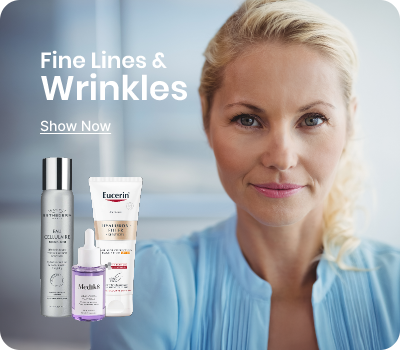
The world of skincare is constantly evolving, and 2025 is shaping up to be a groundbreaking year for innovative ingredients that promise better results than ever before. From advanced peptides to next-generation retinoids, the beauty industry is pushing the boundaries of science to deliver skincare solutions that are more effective, sustainable, and tailored to individual needs. In this guide, we’ll explore the top dermatologist-recommended skincare ingredients that are set to dominate the industry this year—because glowing, healthy skin never goes out of style!
The Evolution of Skincare Ingredients in 2025
Skincare has come a long way from traditional remedies and generic formulas. In 2025, we’re witnessing a shift toward high-performance, bioengineered ingredients that work harmoniously with the skin’s natural processes. With a greater emphasis on personalised skincare, many of these breakthrough ingredients are designed to work with different skin types and conditions, ensuring maximum efficacy.
Why Dermatologists Are Focused on These Breakthrough Ingredients
Dermatologists are constantly researching and testing new ingredients to ensure they are both safe and effective. In 2025, their focus has shifted toward ingredients that not only deliver visible results but also support long-term skin health. Additionally, dermatologists are paying closer attention to ingredients that minimise irritation, cater to sensitive skin, and provide multifunctional benefits—helping consumers simplify their routines without compromising on performance.
How the Right Ingredients Can Transform Your Skin
Using the right skincare ingredients can make a dramatic difference in the health and appearance of your skin. With the latest innovations, skincare products are now designed to deliver targeted results while enhancing the skin’s resilience against environmental aggressors like pollution and UV rays. By incorporating these ingredients into your routine, you can unlock the full potential of your skin and maintain a youthful, healthy glow for years to come.
The Power of Next-Generation Retinoids
In 2025, skincare technology has paved the way for next-generation retinoids that deliver the same (or even better) results as traditional retinoids with fewer side effects. These new formulations are designed to be more stable, more effective, and gentler on the skin, making them suitable for a wider range of skin types.
The Best Retinoid Derivatives for Anti-Ageing and Acne Control
Choosing the right retinoid depends on your skin concern:
- Retinaldehyde works up to 11 times faster than traditional retinol, delivering visible results in a shorter time frame. It helps accelerate cell turnover, smooths rough texture, and stimulates collagen production, making it an excellent choice for those seeking powerful yet tolerable anti-ageing benefits.
- Adapalene is a dermatologist-recommended retinoid for acne-prone skin that works by regulating skin cell turnover and preventing dead cells from clogging pores. It has powerful anti-inflammatory properties, making it a great option for those with sensitive or breakout-prone skin looking for a long-term acne treatment.
- Hydroxypinacolone retinoate (HPR) is an advanced, next-generation retinoid that delivers powerful anti-ageing and skin-renewing benefits with minimal irritation. HPR is an ester of retinoic acid, meaning it works directly without needing to be converted. This allows it to produce visible improvements in fine lines, wrinkles, and skin texture more quickly. Its gentle yet potent nature makes it an excellent choice for individuals with sensitive skin or those new to retinoids.
- Bakuchiol, a plant-derived alternative to traditional retinoids, offers a gentle yet effective way to enhance collagen production, smooth fine lines, and reduce the appearance of wrinkles. Because bakuchiol is non-irritating and well-tolerated by most skin types, including sensitive and reactive skin, it is an excellent option for those looking to achieve youthful, radiant skin without the risk of redness or discomfort.
How to Incorporate Retinoids into Your Routine Without Overdoing It
To avoid irritation, start with a low concentration and use retinoids gradually, such as two to three times a week at night. Follow up with a moisturiser and always apply sunscreen during the day, as retinoids increase sun sensitivity. For sensitive skin, combining retinoids with niacinamide, ceramides, or peptides can help minimise irritation.
Peptides 2.0: The New Age of Skin Firming and Repair
In 2025, peptide technology has reached new heights, with cutting-edge formulations designed to deliver faster, more targeted results. These next-generation peptides go beyond basic hydration and repair—they actively signal the skin to rejuvenate itself at a cellular level, making them a must-have for anyone looking to combat signs of ageing and maintain a youthful complexion.
Best Cutting-Edge Peptides To Boost Collagen and Elasticity
There are a number of advanced peptide formulations available to boost collagen, enhance elasticity, and promote overall skin health:
- Tripeptides and tetrapeptides are bioengineered peptides designed to penetrate deeper into the skin and stimulate fibroblasts—the cells responsible for collagen synthesis. These peptides work by mimicking natural growth factors in the skin, encouraging increased collagen production and improving skin density over time.
- Palmitoyl pentapeptide is a signal peptide, which acts as a messenger that instructs skin cells to repair and regenerate. This peptide is commonly found in anti-ageing formulations as it helps to reduce the appearance of wrinkles by stimulating new collagen and hyaluronic acid production.
- Copper peptides are specialised peptides that also play a crucial role in skin healing, reducing inflammation, and strengthening the skin barrier—making them ideal for those looking to repair damaged or ageing skin.
Combining Peptides with Other Ingredients for Maximum Results
Combining peptides with niacinamide can enhance skin barrier function and reduce fine lines, while using them alongside hyaluronic acid boosts hydration, plumping the skin for a smoother appearance. Antioxidants like vitamin C can further amplify collagen synthesis, helping to brighten and firm the skin.
Smart Hydration Technology: The Evolution of Moisture Retention
Hydration is the foundation of healthy, glowing skin, and in 2025, skincare is getting smarter with advanced moisture-retention technology. Traditional moisturisers often provide temporary relief, but smart hydration technology takes it a step further by adapting to your skin’s unique needs in real-time. These innovations ensure that hydration is not just replenished but maintained throughout the day, preventing dryness, irritation, and premature ageing.
The Role of Smart Hydrators That Adapt to Your Skin’s Needs
Smart hydrators are cutting-edge ingredients that adjust their hydration levels based on how much moisture your skin requires at any given moment. Some formulations contain moisture-sensitive polymers that release hydration gradually, ensuring that the skin stays balanced without feeling greasy or overly dry. This intelligent approach to hydration is particularly beneficial for those with combination skin or those who experience seasonal fluctuations in skin moisture levels.
How Advanced Hyaluronic Acid Complexes Deliver Lasting Hydration
New multi-molecular Hyaluronic Acid (HA) complexes are revolutionising how we retain moisture. These advanced complexes feature different molecular weights, allowing them to penetrate various layers of the skin. Additionally, bio-fermented HA and cross-linked HA provide even longer-lasting hydration by improving skin’s water retention capacity.
The Best Moisture-Locking Ingredients to Look for in 2025
In addition to hyaluronic acid, look for ingredients like polyglutamic acid, which holds four times more moisture than HA, and saccharide isomerate, a plant-derived hydrator that binds water to the skin for up to 72 hours. Ceramides and lipid-replenishing peptides also play a crucial role in reinforcing the skin barrier, ensuring hydration stays locked in.
Blue Light Protection Ingredients: Defending Against Digital Ageing
While UV rays have long been known to cause premature ageing, research now shows that prolonged exposure to blue light—also known as high-energy visible (HEV) light—can accelerate skin damage, leading to hyperpigmentation, inflammation, and collagen breakdown. As a result, skincare in 2025 is evolving to include powerful blue light protection ingredients designed to defend against digital ageing and maintain a healthy, youthful complexion.
The Best Antioxidants and Botanicals for Digital Defence
To counteract blue light damage, skincare formulations now feature specialised antioxidants that neutralise oxidative stress and strengthen the skin barrier. Ingredients like niacinamide, vitamin C, and astaxanthin help fight free radicals, while marine algae and cacao extract absorb blue light before it can penetrate the skin. Additionally, lutein—a carotenoid found in leafy greens—has been shown to filter HEV light, providing natural protection from screen exposure.
How to Combine Sunscreen and Blue Light Protection for Full Coverage
While traditional sunscreens protect against UV rays, they don’t always block blue light. Look for broad-spectrum sunscreens that contain iron oxides, as they provide an additional layer of defence against HEV light. Pairing SPF with an antioxidant-rich serum or moisturiser enhances protection, creating a comprehensive shield against both outdoor and digital ageing.
Vegan Collagen: The Plant-Based Alternative to Traditional Collagen
In 2025, plant-based collagen alternatives are revolutionising the beauty industry, offering a sustainable, ethical, and highly effective way to boost skin strength and elasticity. Thanks to advancements in biotechnology, vegan collagen now provides similar—if not superior—benefits to its animal-derived counterpart.
The Science Behind Vegan Collagen and Its Skin-Strengthening Benefits
Unlike animal-based collagen, which is extracted from bones and connective tissues, vegan collagen is created using bio-fermentation and plant-derived peptides. This lab-grown collagen helps restore skin’s elasticity, improve hydration, and reduce the appearance of fine lines and wrinkles. Additionally, because it’s synthesised under controlled conditions, vegan collagen is often purer and free from contaminants found in traditional sources.
How Plant-Based Peptides Mimic the Effects of Animal Collagen
Instead of directly applying collagen to the skin, vegan alternatives focus on stimulating the body’s natural collagen production. Ingredients like plant-based peptides, amino acids, and botanical extracts (such as seaweed and soy) help activate fibroblast cells, which are responsible for generating collagen. Peptides derived from rice, pea protein, and algae have been shown to provide similar skin-firming benefits as animal collagen, making them excellent cruelty-free alternatives.
The Best Vegan Collagen-Boosting Products in 2025 for Firm, Youthful Skin
Leading skincare brands are now incorporating vegan collagen technology into serums, creams, and supplements. Look for products featuring bio-fermented collagen, peptides, and vitamin C, which work synergistically to enhance skin elasticity and firmness.
Adaptive Skincare: Ingredients That Personalise to Your Needs
Adaptive skincare is transforming the way products work with your skin. These intelligent formulations use cutting-edge botanicals and self-regulating actives to adjust in real-time based on environmental factors, hydration levels, and individual skin concerns.
How Adaptive Botanicals Respond to Climate and Skin Type Changes
Our skin’s needs shift depending on factors like weather, pollution, and hormonal changes. Adaptive botanicals, such as resurrection plant extract and ginseng, help the skin maintain balance by adjusting hydration levels and reinforcing the skin barrier based on external stressors. This means fewer skincare concerns caused by sudden environmental shifts and a more consistent, healthy complexion year-round.
The Science Behind Self-Regulating Actives for Acne and Hydration
Innovative self-regulating actives are designed to work only where and when the skin needs them. Encapsulated salicylic acid, for instance, targets acne-prone areas without over-drying the rest of the face. Similarly, moisture-locking molecules like polyglutamic acid and ectoin adjust hydration levels based on the skin’s condition, preventing both dehydration and excessive oiliness.
The Best Multi-Tasking Ingredients in 2025 That Work for Every Skin Type
Key adaptive skincare ingredients to look for in 2025 include niacinamide, which regulates oil and strengthens the skin barrier, and adaptogenic mushrooms like reishi, which help combat stress-induced inflammation. Peptides, ceramides, and algae extracts further enhance skin resilience, ensuring that adaptive skincare works seamlessly across all skin types and concerns.
Sustainable and Ethical Skincare Ingredients: The Future of Beauty
Consumers in 2025 are more conscious than ever about the environmental and ethical impact of their skincare choices, pushing brands to develop innovative solutions that minimise waste, reduce carbon footprints, and promote ethical sourcing.
Why Sustainability Matters in Skincare Formulations in 2025
Traditional skincare production often relies on resource-intensive practices, leading to deforestation, water pollution, and excessive plastic waste. In response, brands are adopting greener alternatives, such as biodegradable packaging, waterless formulations, and upcycled ingredients. Ethical sourcing is also in focus, ensuring that ingredients like shea butter, argan oil, and mica are harvested under fair-trade conditions, benefiting both the environment and local communities.
The Best Eco-Friendly Skincare Ingredients That Deliver Results
Key sustainable ingredients to look for in 2025 include plant-based squalane (derived from sugarcane), fermented hyaluronic acid, and upcycled fruit extracts rich in antioxidants. Blue biotechnology, which utilises marine microorganisms, is also revolutionising anti-ageing and hydration treatments. These ingredients ensure high-performance skincare without compromising the planet’s well-being.
Conclusion: Why Staying Informed on Skincare Trends Leads to Healthier Skin
Advancements in skincare technology have led to highly effective ingredients that work in harmony with the skin’s natural processes. With a focus on minimising irritation and maximising benefits, these breakthroughs are making skincare both smarter and more accessible.
As skincare science advances, staying informed helps you make better choices for your skin’s long-term health. Understanding the latest ingredients allows you to choose products that align with your specific needs while embracing ethical and sustainable beauty practices. With the right knowledge, achieving radiant, youthful skin is easier than ever.





